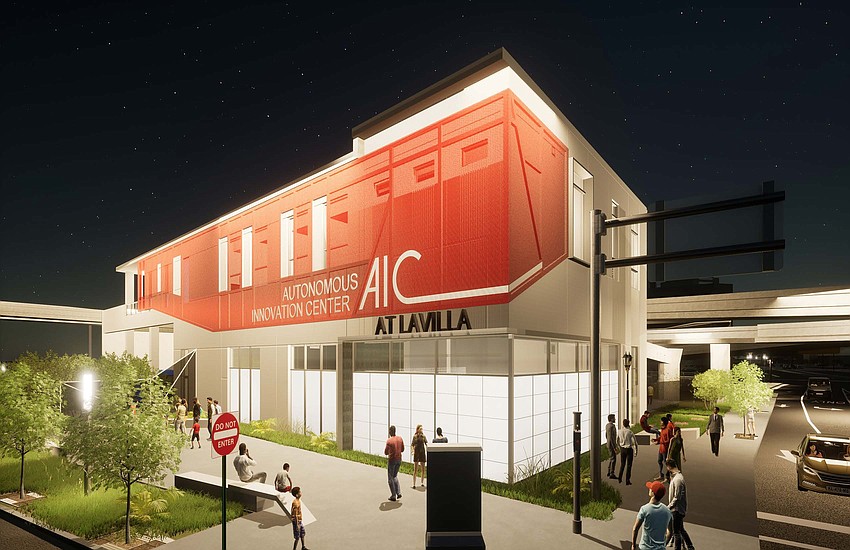
The Jacksonville Transportation Authority’s proposed Ultimate Urban Circulator is designed to convert the Skyway tram structure into an elevated track for autonomous shuttles, with ramps connecting to surface streets.
On Dec. 11, the JTA board approved a contract that will determine whether that truly is the best approach, whether a different design would be preferable or whether that portion of the project should be built at all.
The board voted 4-0 to authorize staff to negotiate and execute a $6.7 million contract with Kansas City, Missouri-based HNTB Corp. to conduct an analysis to determine the locally preferred alternative for the second phase of the system, which the JTA also calls the U2C.

Phase II of the project, as conceived, would involve removing the center rail of the monorail structure and adapting the Skyway structure to support autonomous vehicles. Plans also call for construction of ramps connecting the elevated track to the Bay Street Innovation Corridor, the initial 3.2-mile route of the U2C.
Greer Gillis, JTA senior vice president and chief infrastructure and development officer, said the study would involve:
• Conducting an environmental assessment that would include identifying contamination risks and determining any effects the project may have on historical structures and assets.
• Assessing transportation options to determine which would be optimal.
• Considering a “no-build” option.
• Gathering public input on the plans.

Once the preferred option for Phase II is identified, HNTB will move on to produce 30% design for it. The contract term is for up to five years.
Gillis said a potential outcome of the study could be developing the entire system at ground level versus using the Skyway track.
JTA had previously approved contract negotiations in spring 2024. Gillis said those negotiations were halted after vendors “made the jump that we were going right to the Skyway conversion” as opposed to proceeding through the steps required under state and federal transportation regulations to determine the best option.

Greer said dates for public meetings on the plans would be determined after the contract is negotiated.
Meanwhile, JTA is moving forward on Phase I of the U2C.
In October, JTA held a topping out ceremony for its Autonomous Innovation Center, the $40.5 million, two-story structure at 650 W. Bay St. that will serve as headquarters for the U2C. JTA has targeted a June 2025 launch date for the $66.5 million Bay Street Innovation Corridor.

Holon, a German autonomous-vehicle maker that will build the vehicles for the U2C, announced in September 2024 that it would develop a $100 million assembly plant in North Jacksonville about 3 miles east of the Jacksonville Zoo and Gardens.
Until Holon vehicles are in production, the JTA will use modified passenger vans for the U2C.
Fully built-out, the U2C route would stretch 10 miles and extend into San Marco, Brooklyn and UF Health Jacksonville in Springfield. Its cost has been estimated at up to $400 million.
The Jacksonville City Council approved a 6-cent per gallon increase and extension to Duval County’s local option gas tax in 2021 that included, along with other projects, $247 million for the JTA Downtown Skyway modernization.

